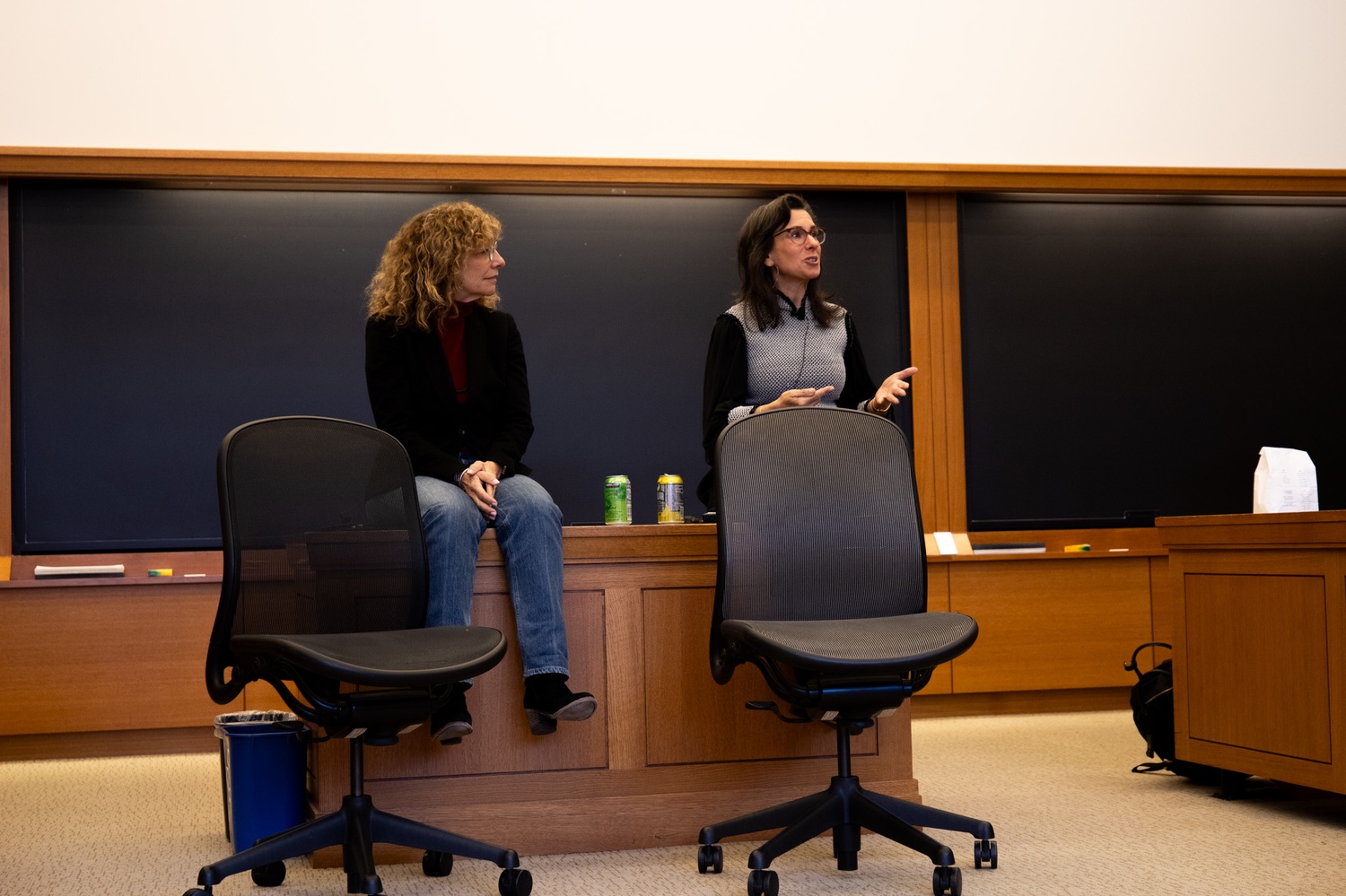
News
Summers Will Not Finish Semester of Teaching as Harvard Investigates Epstein Ties

News
Harvard College Students Report Favoring Divestment from Israel in HUA Survey

News
‘He Should Resign’: Harvard Undergrads Take Hard Line Against Summers Over Epstein Scandal

News
Harvard To Launch New Investigation Into Epstein’s Ties to Summers, Other University Affiliates

News
Harvard Students To Vote on Divestment From Israel in Inaugural HUA Election Survey
Journalist Jodi Kantor Talks Reporting on Weinstein, SCOTUS at Law School Event

Pulitzer Prize-winning New York Times journalist Jodi Kantor discussed her approach to investigative journalism and the importance of remaining nonpartisan at a Harvard Law School event on Wednesday.
At the discussion, moderated by HLS Professor Diane L. Rosenfeld, Kantor — a Harvard Law School dropout who has investigated the Supreme Court and was the first to report on sexual assault allegations against Harvey Weinstein — emphasized the importance of pursuing a “truth first” ethos in journalism.
“Because you’re being guided by the truth, you’re not on anybody’s side,” she said. “Sometimes in the course of the Weinstein investigation, female sources would say ‘Go get them!’ and you’d have to politely come back at them and say, ‘I’m not actually on a mission to get her to Weinstein.’”
“I just want to know what happened,” she added. “I want to be able to document the truth.”
She added that remaining nonpartisan while investigating the influence of right-wing donors and organizations on the Supreme Court was integral to building trust with her sources.
“Reporters have a lot of the same responsibilities as judges in terms of striving to transcend whatever your own background is, to be trusted by the largest number of people possible, to maintain a completely open mind,” she said.
Kantor has reported extensively on the Supreme Court, including the decision to overturn Roe v. Wade and Chief Justice John Roberts’ handling of the aftermath of the Jan. 6 attack on the capitol. She said her experience reporting on right-wing Reverend Rob Schenck’s influence on the court’s abortion decisions was “a really eye-opening experience” that changed how she viewed the institution.
“It raised all sorts of questions for me about ethics, secrecy,” she said. “If this is going on inside the Supreme Court, what else is happening there?”
She said investigative journalism was essential in holding the notoriously opaque institution to account.
“There’s been this convention that we’re not really allowed to know anything about the Supreme Court, and there’s a very strong convention that everything we need to know about the court we can learn from the oral arguments and the opinions,” she said. “I don’t think that’s true. I think we’ve proven empirically that there is a lot more to be learned. So, what you want to do is ask really good questions.”
Kantor also discussed the difficulty of building trust with sources as an investigative reporter.
“I think people’s biggest fear is that they’re going to lose agency in the process, that they’re going to be taken advantage of,” she said of people when they’re called by a journalist.
Kantor likened cooperating with journalists to making a donation to the public interest.
“I acknowledge that I have information that is relevant to other people's lives or relevant to the public good,” she said. “Working with sources is about crafting the right way for them to make that donation.”
She said that the end goal, as with the Weinstein investigation she conducted with Megan Twohey, was not to ruin people’s lives or create scandals but rather to expose wrongdoing.
“Megan and I always knew that journalism might be the main avenue of accountability,” Kantor said.
Want to keep up with breaking news? Subscribe to our email newsletter.
